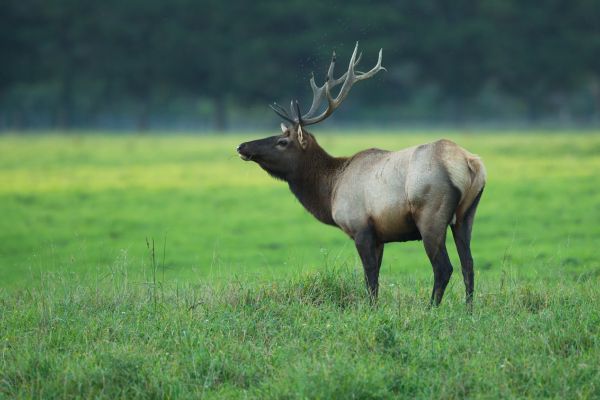
- Details
- By Kaili Berg
The Elk Valley Rancheria was awarded $3,440,838 last month from the U.S Federal Highway Administration National Scenic Byways Program.
The award will be used to create trails and interpretive viewing platforms accessible off of highway 101 to provide visitors a place to stop for elk viewing, walking, and hiking. Interpretive materials will include information about the elk and other wildlife, environments, and Tribal history.
The Elk Valley Rancheria is located in Northern California, three miles north of the northern border of the Del Norte Coast Redwoods State Park, which is part of the beloved Redwood National and State Park system.
“We are excited to provide our Tribal members, local community, and visitors with a safe and educational place to enjoy the outdoors in a beautiful environment,” Dale Miller, Chairman of the Tribe said in a statement.”It also provides an outstanding opportunity to share our Tribal culture with the world.”
The Tribe will be partnering with the California Department of Fish and Wildlife on the project. The Roosevelt elk consists of seven elk herds, including the Bald Hills herd, which is the largest of the herds consisting of about 250 animals.
“Roosevelt elk are a spectacular part of the wildlife and scenery that make our district such a special place – but there needs to be safer ways for motorists and visitors to view them along Highway 101,” Congressman Jared Huffman (C-CA 2nd District) said in a statement. “This funding to construct walking trails and viewing platforms will not only improve safety for the Tribe and community in Crescent City, but it will spur economic development in this rural, disadvantaged area. I’m incredibly glad to have supported Elk Valley Rancheria in their request for funding and to see it come through.”
More Stories Like This
Gwich'in Tribal Governments Submit Comments Challenging Fish and Wildlife Service's Inadequate Environmental Review of Arctic Refuge Snow RoadRappahannock Tribe Challenges 9M-Gallon Water Plan
Feds release draft long-term plans for Colorado River management
Apache Leader Walks 60 Miles to Court Hearing That Will Decide Fate of Sacred Oak Flat
Rappahannock Tribe Raises Sovereignty and Environmental Concerns Over Caroline County Water Permit
Help us defend tribal sovereignty.
At Native News Online, our mission is rooted in telling the stories that strengthen sovereignty and uplift Indigenous voices — not just at year’s end, but every single day.
Because of your generosity last year, we were able to keep our reporters on the ground in tribal communities, at national gatherings and in the halls of Congress — covering the issues that matter most to Indian Country: sovereignty, culture, education, health and economic opportunity.
That support sustained us through a tough year in 2025. Now, as we look to the year ahead, we need your help right now to ensure warrior journalism remains strong — reporting that defends tribal sovereignty, amplifies Native truth, and holds power accountable.
 The stakes couldn't be higher. Your support keeps Native voices heard, Native stories told and Native sovereignty defended.
The stakes couldn't be higher. Your support keeps Native voices heard, Native stories told and Native sovereignty defended.
Stand with Warrior Journalism today.
Levi Rickert (Potawatomi), Editor & Publisher


